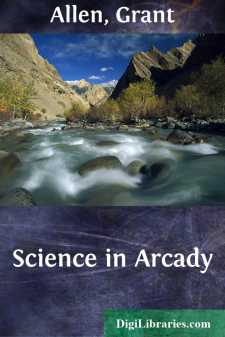Categories
- Antiques & Collectibles 13
- Architecture 36
- Art 48
- Bibles 22
- Biography & Autobiography 813
- Body, Mind & Spirit 142
- Business & Economics 28
- Children's Books 15
- Children's Fiction 12
- Computers 4
- Cooking 94
- Crafts & Hobbies 4
- Drama 346
- Education 46
- Family & Relationships 57
- Fiction 11828
- Games 19
- Gardening 17
- Health & Fitness 34
- History 1377
- House & Home 1
- Humor 147
- Juvenile Fiction 1873
- Juvenile Nonfiction 202
- Language Arts & Disciplines 88
- Law 16
- Literary Collections 686
- Literary Criticism 179
- Mathematics 13
- Medical 41
- Music 40
- Nature 179
- Non-Classifiable 1768
- Performing Arts 7
- Periodicals 1453
- Philosophy 64
- Photography 2
- Poetry 896
- Political Science 203
- Psychology 42
- Reference 154
- Religion 513
- Science 126
- Self-Help 84
- Social Science 81
- Sports & Recreation 34
- Study Aids 3
- Technology & Engineering 59
- Transportation 23
- Travel 463
- True Crime 29
Early Britain Anglo-Saxon Britain
by: Grant Allen
Description:
Excerpt
CHAPTER I.
THE ORIGIN OF THE ENGLISH.
At a period earlier than the dawn of written history there lived somewhere among the great table-lands and plains of Central Asia a race known to us only by the uncertain name of Aryans. These Aryans were a fair-skinned and well-built people, long past the stage of aboriginal savagery, and possessed of a considerable degree of primitive culture. Though mainly pastoral in habit, they were acquainted with tillage, and they grew for themselves at least one kind of cereal grain. They spoke a language whose existence and nature we infer from the remnants of it which survive in the tongues of their descendants, and from these remnants we are able to judge, in some measure, of their civilisation and their modes of thought. The indications thus preserved for us show the Aryans to have been a simple and fierce community of early warriors, farmers, and shepherds, still in a partially nomad condition, living under a patriarchal rule, originally ignorant of all metals save gold, but possessing weapons and implements of stone, and worshipping as their chief god the open heaven. We must not regard them as an idyllic and peaceable people: on the contrary, they were the fiercest and most conquering tribe ever known. In mental power and in plasticity of manners, however, they probably rose far superior to any race then living, except only the Semitic nations of the Mediterranean coast.
From the common Central Asian home, colonies of warlike Aryans gradually dispersed themselves, still in the pre-historic period, under pressure of population or hostile invasion, over many districts of Europe and Asia. Some of them moved southward, across the passes of Afghanistan, and occupied the fertile plains of the Indus and the Ganges, where they became the ancestors of the Brahmans and other modern high-caste Hindoos. The language which they took with them to their new settlements beyond the Himalayas was the Sanskrit, which still remains to this day the nearest of all dialects that we now possess to the primitive Aryan speech. From it are derived the chief modern tongues of northern India, from the Vindhyas to the Hindu Kush. Other Aryan tribes settled in the mountain districts west of Hindustan; and yet others found themselves a home in the hills of Iran or Persia, where they still preserve an allied dialect of the ancient mother tongue.
But the mass of the emigrants from the Central Asian fatherland moved further westward in successive waves, and occupied, one after another, the midland plains and mountainous peninsulas of Europe. First of all, apparently, came the Celts, who spread slowly across the South of Russia and Germany, and who are found at the dawn of authentic history extending over the entire western coasts and islands of the continent, from Spain to Scotland. Mingled in many places with the still earlier non-Aryan aborigines—perhaps Iberians and Euskarians, a short and swarthy race, armed only with weapons of polished stone, and represented at the present day by the Basques of the Pyrenees and the Asturias—the Celts held rule in Spain, Gaul, and Britain, up to the date of the several Roman conquests. A second great wave of Aryan immigration, that of the Hellenic and Italian races, broke over the shores of the Ægean and the Adriatic, where their cognate languages have become familiar to us in the two extreme and typical forms of the classical Greek and Latin. A third wave was that of the Teutonic or German people, who followed and drove out the Celts over a large part of central and western Europe; while a fourth and final swarm was that of the Slavonic tribes, which still inhabit only the extreme eastern portion of the continent.
With the Slavonians we shall have nothing to do in this enquiry; and with the Greek and Italian races we need only deal very incidentally. But the Celts, whom the English invaders found in possession of all Britain when they began their settlements in the island, form the subject of another volume in this series, and will necessarily call for some small portion of our attention here also; while it is to the Germanic race that the English stock itself actually belongs, so that we must examine somewhat more closely the course of Germanic immigration through Europe, and the nature of the primitive Teutonic civilisation....












